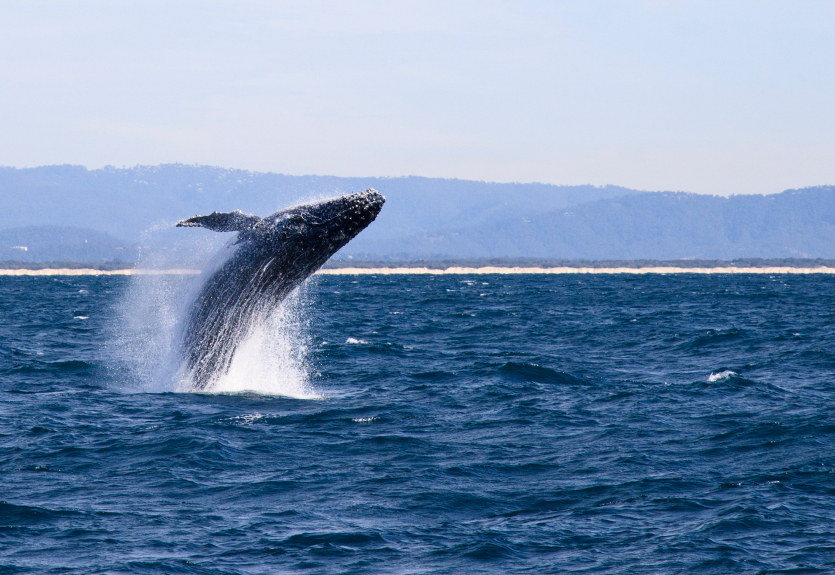Japanischer EU-Botschafter direkt auf Walfischjagd angesprochen
Die Partei für die Tiere hat den neuen japanischen EU-Botschafter Kazua Kodama am 26. Oktober direkt auf die andauernde japanische Walfischjagd angesprochen. Es war Kodamas erste Zusammenkunft mit dem Europäischen Parlament. “Diese Woche feiern wir das 30 jährige Jubiläum des internationalen Verbots der Walfischjagd. Im Juli hat eine große Mehrheit des Europäischen Parlaments Japan aufgefordert, die Jagd auf Wale zu beenden. Wird Japan weitermachen, dieser Aufforderung zum Trotz?”, so Europaparlamentarierin Anja Hazekamp.

Die Partei für die Tiere fragte den japanischen Botschafter außerdem die japanische Blockade eines Walfischreservats im Südatlantik zu erklären, auf eine Versammlung der Internationalen Walfischfahrtskommission (IWC) hinweisend, die letzten Dienstag mit Teilnehmern aus 64 Ländern stattfand. Während dieser Versammlung wurde vorgeschlagen, im südlichen Teil des Atlantiks ein neues Reservat einzurichten. Dieses Reservat soll Delfinen und Walfischen nicht nur Sicherheit vor der Jagd bieten, sondern auch vor allerlei anderen Gefahren schützen. Obwohl alle Länder in der Region die Pläne für ein Walfischreservat unterstützten, wurde die Initiative aufgrund des Drucks von Japan von den walfischfahrenden Ländern blockiert.
“Es ist nicht zu Begreifen, warum Japan erneut gegen Schutzmaßnahmen für Wale gestimmt hat. Es ist in jedermanns Interesse, dass man Wale vor dem Aussterben schützt,” sagte Anja Hazekamp zu Botschafter Kodama.
Der japanische Botschafter gab an, dass sein Land gegen die Schutzzone gestimmt habe, weil diese der japanischen Walfischfahrt im Weg stehen würde. Außerdem sagte Kodama, man plane die Walfischjagd in Japan nicht zu beenden. Er verwies dabei auf einen Briefwechsel zwischen der Partei für die Tiere und seinem Vorgänger, der eher dieses Jahr stattfand, worin Anja Hazekamp den Botschafter auf einen Ausspruch des Internationalen Gerichtshofs in den Haag hinweist, die in der Vergangenheit von Japan ausgeführte Walfischjagd in dieser Region sei unrechtmäßig gewesen. Genauso wie sein Vorgänger gibt Kodama an diese Aussprache anders zu interpretieren und sieht somit Gelegenheit die Walfischjagd fortzusetzen.
At his first European Parliament meeting on 26 October, new Japanese EU ambassador Kazua Kodama was addressed directly by the Party for the Animals on the ongoing whaling activities in Japan. “This week we are celebrating the 30th anniversary of the International Whaling Ban. In July, a majority of European Parliament has called on Japan to put an end to whale hunting. Is Japan going to ignore the European Parliament’s call?” MEP Anja Hazekamp asked Kodama.

In addition, the Party for the Animals has asked the ambassador to clarify why Japan has defeated the proposal to create a whale sanctuary in the South Atlantic, referring to a meeting of the International Whaling Commission (IWC) last Tuesday, when members of 64 nations were brought together. During the meeting it was proposed that a new sanctuary would be realised in the southern part of the Atlantic, which would provide safety for dolphins and whales not only against hunting, but against other kinds of danger. Although all countries in the region supported the plans for a whale sanctuary, pressure from Japan has caused whaling nations to block the initiative.
“Yet Again, Japan has voted against measures to protect the whales, which is unbelievable. Saving whales from extinction is in everyone’s interest,” Hazekamp declared.
The Japanese ambassador indicated that his country voted against the protected area because it would interfere with Japanese whaling. He also stated that he does not intend to end Japanese whale hunting, by which he was referring to an exchange of letters earlier this year between his predecessor and the Party for the Animals. In her letter, Hazekamp pointed out a judgement of the International Court of Justice in The Hague stating that the whaling that took place in Japan in the past was illegal in that area. Like his predecessor, Kodama has declared that he interprets the judgement differently and sees scope to continue whale hunting.